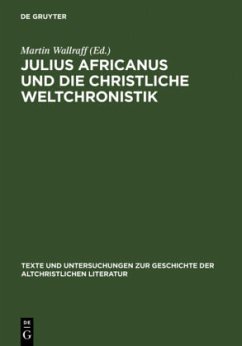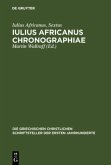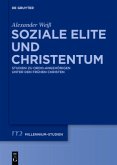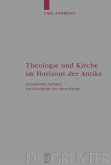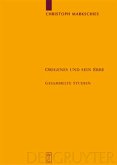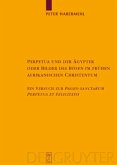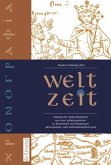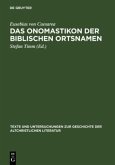Julius Africanus (3rd cent.) has been called the â??Father of Christian Chronographyâ?â?? the exact calculation of dates and ages (such as the date of the Incarnation, and indirectly also of the end of the world). At the same time, however, he also presents the beginnings of a Christian universal history (Universal Chronicle), a genre which decisively influenced the historical thinking of both Orient and Occident over hundreds of years. The present studies open up this literatureâ?? some of which is virtually inaccessibleâ?? and make significant contributions to research into Latin, Greek and Oriental representations of the genre of universal chronicle.
Julius Africanus (3. Jh.) ist als "Vater der christlichen Chronographie" bezeichnet worden; darunter versteht man die genaue Berechnung von Zeiten (etwa die Datierung der Inkarnation, indirekt auch des Weltendes). Zugleich finden sich bei ihm aber auch die Anfänge christlicher Universalgeschichte (Weltchronistik), einer Gattung, die über Jahrhunderte das Geschichtsdenken des Abend- und Morgenlandes maßgeblich bestimmt hat. Die vorliegenden Studien erschließen diese zum Teil schwer zugängliche Literatur und leisten wesentliche Forschungsbeiträge zur lateinischen, griechischen und orientalischen Weltchronistik.
Julius Africanus (3. Jh.) ist als "Vater der christlichen Chronographie" bezeichnet worden; darunter versteht man die genaue Berechnung von Zeiten (etwa die Datierung der Inkarnation, indirekt auch des Weltendes). Zugleich finden sich bei ihm aber auch die Anfänge christlicher Universalgeschichte (Weltchronistik), einer Gattung, die über Jahrhunderte das Geschichtsdenken des Abend- und Morgenlandes maßgeblich bestimmt hat. Die vorliegenden Studien erschließen diese zum Teil schwer zugängliche Literatur und leisten wesentliche Forschungsbeiträge zur lateinischen, griechischen und orientalischen Weltchronistik.

